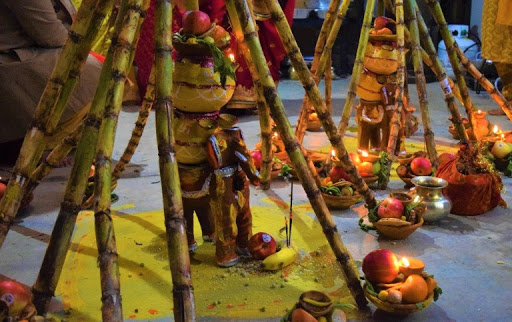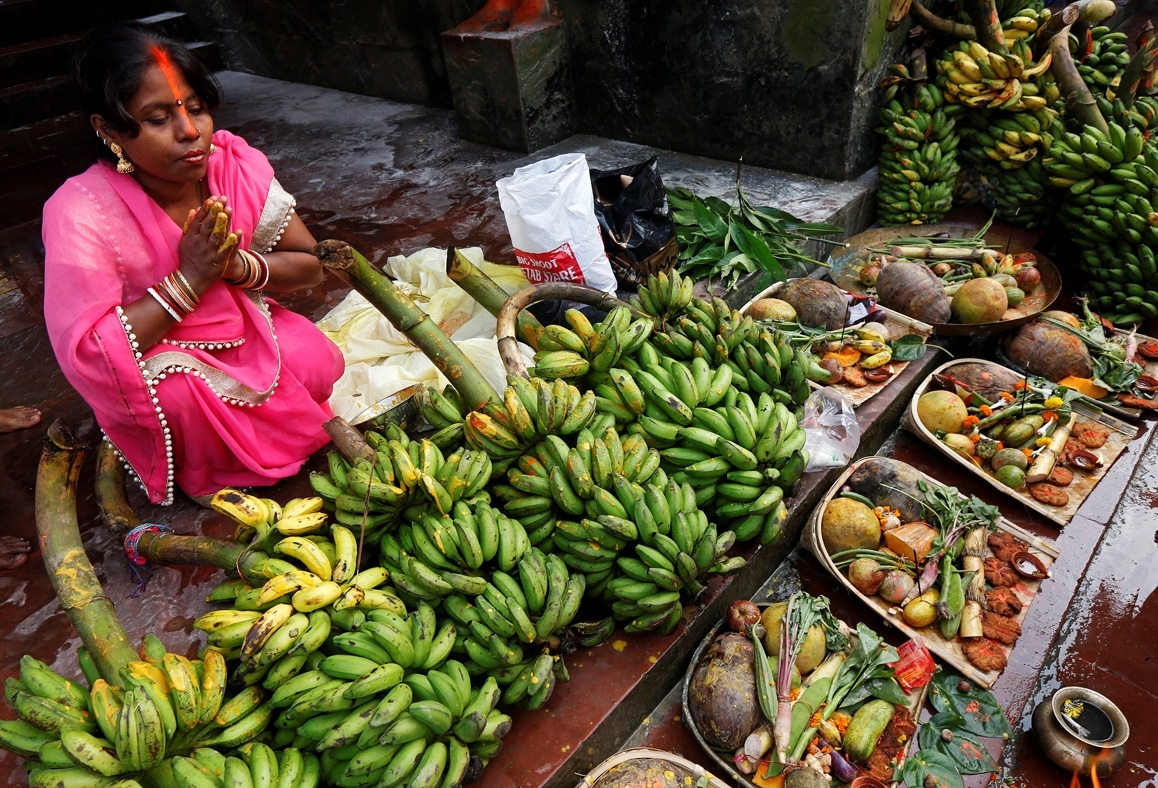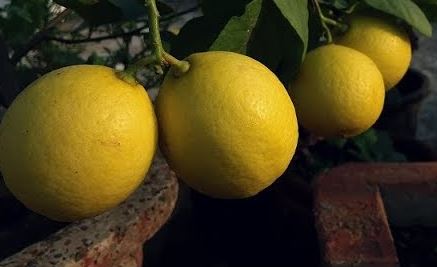Patna: The four-day long Chhath Puja begins today. 'Chhath Mahaparva’ is celebrated with great fervour and enthusiasm in north India including Bihar, Jharkhand and Uttar Pradesh.
There is jubilation among the people in Bihar.
The four-day long ‘Chhath Puja’ takes place every year on the ‘Shashthi’ of ‘Shukla Paksha’ of 'Kartik' month, which comes close on the heels of the festival of lights. Chhath Puja is the biggest festival of Hindus after Diwali. This festival is also known as Chhath Puja, Surya Sasthil Puja and Dala Chhath.
The first day is known as Nahay-Khay, which marks the beginning of the Chhath festival. The festival of Chhath is celebrated by keeping a 36-hour Nirjala fast.
Chhath Puja is believed to be the only Vedic Festival dedicated to Surya (the Sun God).
The festival ends on the next day on 19 November and will conclude on 21. On the evening of November 20, the first prayer will be offered to the Lord Surya. On 21 November morning, prayer and other offerings will be made to the rising sun, marking the conclusion of the holy festival. This is the rare Hindu festival in which no priest is involved.
Chhath festival of Purity
Several sweet ‘Prasadam’ such as ‘thekua’ and ‘pua’ are made with the utmost cleanliness to please the Goddess Chhath Mai. In Bihar, its preparation is done along with the festival of Diwali. According to faith, fruits have special importance in the Chhath Mahaparva. The ‘Daalis’ are taken to the ‘Ghats’ which are decorated with these fruits and are offered to ‘Goddess Chhath Mai.’ These fruits are distributed to everyone in the form of offerings.
COCONUT
Coconut is considered to be the Mother Lakshmi and a very sacred fruit. The reason behind this is the fact that no living being can impure this fruit. At the same time, there has been a tradition for long to offer coconut as a mark of respect and faith during the Chhath Puja offerings to the sun god.
SUGARCANE
Sugarcane holds a significant place in the Chhath Puja. During this Mahaparva, in the evening, a cane house is built in the courtyard of the house and an imitation of an elephant is kept under it. Then the ‘Chhath Mai’ is worshipped. It is believed that sugarcane is liked most by the ‘Chhath Mai.’ This is the reason why ‘prasadam’ is also made by using jaggery. It is believed that by offering sugarcane, the ‘Chhath Mai’ blesses her devotees with happiness and prosperity.

BANANA
It is believed that the banana plant is inhabited by Lord Vishnu. The belief is that banana is the most sacred fruit. That is why banana holds its special importance in Chhath Mahaparva.

BETEL NUT
The divine fruit betel nut is used for all auspicious works. The worship is done only with betel nut. This fruit, called ‘Pugifalam’ in Sanskrit, is considered to be the habitat of Goddess Lakshmi. Its purity remains intact against all exposure. This is the reason that betel nut is offered to the Goddess Chhath during the puja.
WATER CHESTNUT
The water chestnut is liked by Goddess Lakshmi. It is considered to be a curative and powerful fruit. The cover is thick consisting of thorns in it.
‘DABH’ LEMON
The large size lemon, which tastes sour and sweet, is called ‘Dabh’ lemon. It is among prominent offerings made during the performance of ‘Chhath Puja’ by devotees.

Nahay-Khay time
Karthik Shukla: Chaturthi Tithi
Date: 18 November, Wednesday
Sunrise: 06:46 AM
Sunset: 05:26 PM
Also Read: Odisha govt prohibits Chhath celebrations at rivers, public ghats



